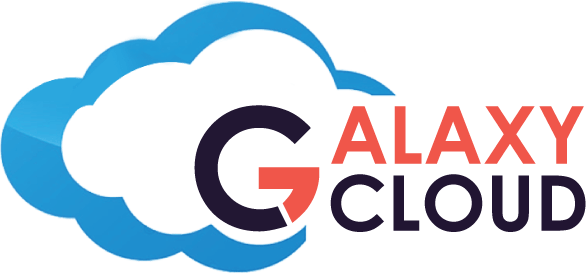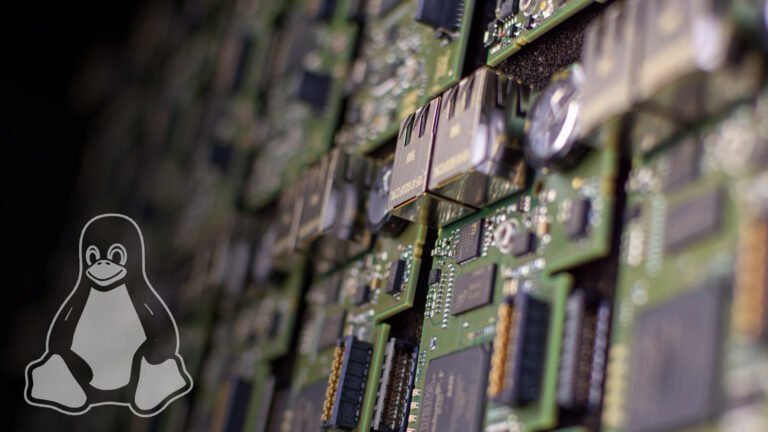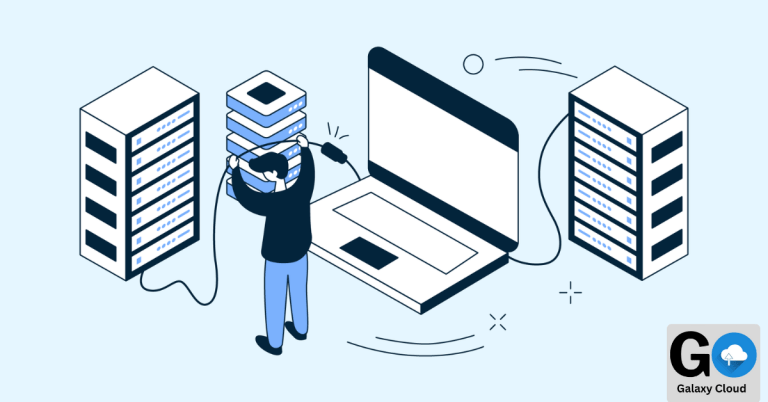PHP Training 100% Practical
PHP Training
4.5 Ratings
3047
4.5/5.0 300 Reviews
Key Features
- 6 Week Practical Training
- Over 20 Live Projects
- Industry Recognized Certification
- 100% Placement Assistance
Online Training
150+ Live-instructor Led classes
Online Training
Flexible PHP offline training schedules
Ongoing Support
24*7 continuous life-time support
Career Guidance
Free career orientation and guide
Best PHP Training Program
Our PHP training and certification is delivered by expert trainers who hone their web development expertise through implementation of enterprise-grade web solutions.
Throughout the entire program, students work on real-life PHP web and scripting projects that expose them to core PHP implementation.
Upon complication of GalaxyCloud’s PHP course, students gain not just skills but also the confidence to operate in any environment and handle complex projects seamlessly.
PHP Training Course Details
Overview
This PHP training course offers a comprehensive knowledge of PHP and MySQL, enabling you to create enterprise web and application solutions that meet the high standards of modern business demands. You will master the seamless integration of web interfaces and back-end systems for exceptional project results. Additionally, you will delve into advanced PHP concepts and MySQL database management for web framework as implemented in the industry or enterprise environment.
What you will learn
- Installing and Configuring PHP and MySQL
- Looping Mechanisms and Logical Expressions for coding
- Using PHP built-in functions and creating custom functions
- Creating dynamic web page
- Implementing forms and cookies for data storage
- Integrating MySQL and PHP
- CRUD Foundamentals
- Managing database records
- MySQL database management for administrators and developers
- MySQL Advance Concept: Storage Procedures
who can take this PHP course
- Web and application developers
- UI/UX designers
- Java developers
- Database administrators and developers
- System Administrators
what is the eligibility for this training?
The Galaxy Cloud’s PHP training course comes with a simple and well-curated structure that makes it suitable for beginners and professionals. Professionals can brush up their existing knowledge with program. It also paves the way for absolute beginners to develop advanced PHP knowledge and competence for web, application and database development and management.
PHP Training Course Curriculum
Chapter 1.1 History
Chapter 1.2 Versions and Differences between them Practicality
Chapter 1.3 Power
Chapter 1.4 Installation and configuring Apache and PHP
Chapter 2.1 Default syntax
Chapter 2.2 Styles of PHP tags
Chapter 2.3 Comments in PHP
Chapter 2.4 Output functions in PHP
Chapter 2.5 Data types in PHP
Chapter 2.6 Configuration Settings
Chapter 2.7 Error Types
Chapter 3.1 Variable Declarations
Chapter 3.2 Variable Scope
Chapter 3.3 PHP’s Super global Variables
Chapter 3.4 Variable Variables
Chapter 4.1 Magic Constants
Chapter 4.2 Standard Pre-defined Constants
Chapter 4.3 Core Pre-defined Languages
Chapter 4.4 User defined Constants
Chapter 5.1 Execution Control Statements
Chapter 5.2 Conditional Statements
Chapter 5.3 Looping Statements with Real-time Examples
Chapter 6.1 Creating Functions
Chapter 6.2 Passing Arguments by Value
Chapter 6.3 Passing Arguments by Reference
Chapter 6.4 Recursive Functions
Chapter 7.1 What is an Array?
Chapter 7.2 How to create an Array
Chapter 7.3 Array Functions
Chapter 7.4 Traversing Arrays
Chapter 8.1 Include, Include_once
Chapter 8.2 Require, Require_once
Chapter 9.1 Validating Textboxes, Emails, Phone Number Etc
Chapter 9.2 Creating Custom Regular Expressions
Chapter 10.1 Classes, Objects, Fields, Properties, _set(),
Chapter 10.2 Constants, Methods
Chapter 10.3 Encapsulation
Chapter 10.4 Inheritance and types
Chapter 10.5 Polymorphism
Chapter 10.6 Constructor and Destructor
Chapter 10.7 Static Class Members, Instance of Keyword,
Chapter 10.8 Helper Functions
Chapter 10.9 Object Cloning and Copy
Chapter 10.10 Reflections
Chapter 11.1 What is MySQL
Chapter 11.2 Integration with MySQL
Chapter 11.3 MySQL Functions
Chapter 11.4 Gmail Data Grid options
Chapter 11.5 SQL Injection
Chapter 11.6 Uploading and downloading images in Database
Chapter 11.7 Registration and Login forms with validations
Chapter 11.8 Paging, Sorting…
Chapter 12.1 Declarations styles of String Variables
Chapter 12.2 String Functions
Chapter 12.3 Regular Expression Syntax(POSIX)
Chapter 12.4 PHP’s Regular Expression Functions(POSIX Extended)
Chapter 13.1
File Functions
Chapter 13.2
Open, Create and Delete files
Chapter 13.3
Create Directories and Manipulate them
Chapter 13.4
Directory Functions
Chapter 13.5
Calculating File, and Directory
Chapter 14.1 Error Logging
Chapter 14.2 Configuration Directives
Chapter 14.3 PHP’s Exception Class
Chapter 14.4 Throw New Exception
Chapter 14.5 Custom Exceptions
Chapter 15.1 Date and Time Functions
Chapter 16.1 HTTP Authentication
Chapter 16.2 PHP Authentication
Chapter 16.3 Authentication Methodologies
Chapter 17.1 Why Cookies?
Chapter 17.2 Types of Cookies
Chapter 17.3 How to Create and Access Cookies
Chapter 18.1 Session Variables
Chapter 18.2 Creating and Destroying a Session
Chapter 18.3 Retrieving and Setting the Session ID
Chapter 18.4 Encoding and Decoding Session Data
Chapter 18.5 Auto-Login
Chapter 18.6 Recently Viewed Document Index
Chapter 19.1 Why Web Services
Chapter 19.2 RSS Syntax
Chapter 19.3 SOAP
Chapter 19.4 How to Access Web Services
Chapter 20.1 What is XML
Chapter 20.2 Create a XML file from PHP with Database records
Chapter 20.3 Reading Information from XML File
Chapter 21.1 Introduction
Chapter 21.2 Storage Engines
Chapter 21.3 Functions
Chapter 21.4 Operators
Chapter 21.5 Constraints
Chapter 21.6 DDL commands
Chapter 21.7 DML Commands
Chapter 21.8 DCL Command
Chapter 21.9 TCL Commands
Chapter 21.10 Views
Chapter 21.11 Joins
Chapter 21.12 Cursors
Chapter 21.13 Indexing
Chapter 21.14 Stored Procedures
Chapter 21.15 Mysql with PHP Programming
Chapter 21.16 Mysql with SQL Server (Optional)
Chapter 21.1 Introduction
Chapter 21.2 Storage Engines
Chapter 21.3 Functions
Chapter 21.4 Operators
Chapter 21.5 Constraints
Chapter 21.6 DDL commands
Chapter 21.7 DML Commands
Chapter 21.8 DCL Command
Chapter 21.9 TCL Commands
Chapter 21.10 Views
Chapter 21.11 Joins
Chapter 21.12 Cursors
Chapter 21.13 Indexing
Chapter 21.14 Stored Procedures
Chapter 21.15 Mysql with PHP Programming
Chapter 21.16 Mysql with SQL Server (Optional)
Testimonials
PHP Training Participants' Reviews
- List Item #1
- List Item #1
- List Item #1
- List Item #1
- List Item #1
“The PHP training at Galaxy Cloud was incredibly thorough and practical. The instructors were knowledgeable and supportive, making the learning process enjoyable. A fantastic experience!”

Krish K.
- List Item #1
- List Item #1
- List Item #1
- List Item #1
- List Item #1
“I loved the real-world projects in Galaxy Cloud’s PHP training. It gave me the skills and confidence to start my career as a web developer. Excellent program!”

Wale Tobi
- List Item #1
- List Item #1
- List Item #1
- List Item #1
- List Item #1
“Galaxy Cloud’s PHP training was exceptional! The hands-on approach made complex concepts easy to grasp. I now feel confident in building dynamic web applications. Highly recommend!”

Rajendra A.
Get in Touch
Address
2nd Floor, Om Complex, opp. Nirulas Hotel, Naya Bans, BHEL Township,Noida Sector 15, Uttar Pradesh 201301, India
Phone
+91-8595863332
+91 97180 70460
info@galaxycloud.in
Other Related Courses
Blogs
FAQs
PHP is the acronym for Hypertext Preprocessor, a popular, versatile and widely-used open-source scripting language specifically designed for web development and can seamlessly integrate with HTML. Since its creation in 1994 by Rasmus Lerdorf, PHP has evolved into one of the cornerstones of modern web development, powering a significant portion of the internet, including notable platforms such as:
- WordPress
- Wikipedia
Core Features of PHP
Server-Side Scripting
At its core, PHP is a server-side scripting language, meaning it runs on the server and generates dynamic content that is sent to the client’s web browser. This makes PHP ideal for creating dynamic web pages and applications, as it can interact with databases, handle form submissions, and generate content based on user input.
Embedded in HTML
One of PHP’s defining features is its ability to be embedded directly within HTML code. This allows developers to seamlessly integrate PHP scripts within web pages, making it easy to add dynamic functionality to static HTML content.
Popular PHP Frameworks
PHP’s flexibility and ease of use have given rise to numerous frameworks that streamline development and enforce best practices. Some of the most popular PHP frameworks include:
Laravel
Laravel, created by Taylor Otwell in 2011, is known for its elegant syntax, powerful tools, and robust ecosystem. It provides features like routing, authentication, and ORM (Object-Relational Mapping) through Eloquent, making it a favorite among developers for building modern web applications.
Symfony
Symfony is a highly flexible and configurable framework that provides a set of reusable PHP components and a robust MVC (Model-View-Controller) architecture. It is widely used for building enterprise-level applications and is known for its performance and scalability.
CodeIgniter
CodeIgniter is a lightweight framework that offers a simple and elegant toolkit for building web applications. It is known for its speed and small footprint, making it ideal for developers who need a straightforward and efficient framework.
Yii
Yii (Yes It Is) is a high-performance framework designed for building large-scale web applications. It offers a powerful caching system, robust security features, and an extensive set of tools for rapid application development.
Zend Framework / Laminas
The Zend Framework, now known as Laminas, is a comprehensive framework for building enterprise-level applications. It provides a modular architecture, extensive configuration options, and a wide range of components for various tasks.
PHP in Modern Web Development
Content Management Systems (CMS)
PHP powers many of the world’s most popular content management systems, enabling users to create and manage websites with ease. Notable PHP-based CMS platforms include:
- WordPress: The most popular CMS, used by over 40% of websites globally. It offers a user-friendly interface, extensive plugin ecosystem, and customizable themes.
- Drupal: A flexible and scalable CMS known for its robust security features and ability to handle complex websites and applications.
- Joomla: A user-friendly CMS that strikes a balance between ease of use and flexibility, offering a range of features for building various types of websites.
E-commerce Platforms
PHP is also widely used in the e-commerce space, powering platforms like:
- Magento: A feature-rich e-commerce platform known for its scalability and extensive customization options.
- WooCommerce: A popular WordPress plugin that transforms a WordPress site into a fully functional e-commerce store.
- PrestaShop: An open-source e-commerce platform that provides a comprehensive set of tools for building and managing online stores.
Web Applications and APIs
PHP is a popular choice for developing web applications and APIs due to its ease of use, extensive libraries, and strong community support. Modern PHP development often involves using frameworks like Laravel or Symfony to build robust and scalable applications. Additionally, PHP is commonly used for creating RESTful APIs, enabling seamless communication between different parts of an application or between different applications.
Best Practices for PHP Development
Security
Security is a critical aspect of web development, and PHP developers must follow best practices to protect their applications from common vulnerabilities. Some essential security practices include:
- Input Validation: Always validate and sanitize user input to prevent SQL injection, cross-site scripting (XSS), and other attacks.
- Use Prepared Statements: When interacting with databases, use prepared statements to prevent SQL injection.
- Secure Session Management: Implement secure session handling to protect user data and prevent session hijacking.
- Error Handling: Properly handle errors and exceptions to avoid exposing sensitive information to users.
Code Quality
Maintaining high code quality is essential for building reliable and maintainable PHP applications. Some best practices for code quality include:
- Follow Coding Standards: Adhere to established coding standards, such as PSR (PHP Standard Recommendations), to ensure consistency and readability.
- Use Version Control: Employ version control systems like Git to manage code changes and collaborate with other developers.
- Write Tests: Implement unit tests and integration tests to ensure the functionality and reliability of your code.
- Documentation: Document your code and APIs to make it easier for others (and yourself) to understand and maintain the codebase.
Performance Optimization
Optimizing the performance of PHP applications is crucial for providing a fast and responsive user experience. Some performance optimization tips include:
- Caching: Implement caching mechanisms, such as opcode caching (e.g., OPcache) and data caching (e.g., Redis, Memcached), to reduce the load on the server and improve response times.
- Optimize Database Queries: Ensure that database queries are optimized and use indexing to speed up data retrieval.
- Minimize Resource Usage: Optimize the use of server resources by minimizing memory usage and reducing the number of external requests.
Keeping Up with Updates
PHP is continuously evolving, with new features, improvements, and security fixes being released regularly. It is essential to keep your PHP version and libraries up to date to take advantage of the latest features and ensure the security of your applications.
1. Mastering the Fundamentals
Comprehensive Understanding of Basics
Our PHP training course provides a structured approach to learning the language, ensuring you gain a solid foundation in its syntax, functions, and core concepts. This comprehensive understanding is crucial for writing efficient and error-free code.
Hands-On Practice
This training course comes with hands-on projects and practical exercises, allowing you to apply practical knowledge to real-world scenarios. This practice helps solidify your understanding.
2. Keeping Up with the Latest Features
Staying Current
PHP is continuously evolving, with new features and improvements being introduced regularly. Our training course covers the latest updates, ensuring you stay current with the language’s advancements and best practices. We also provide life time support to the participants.
Learning Modern Techniques
Modern PHP development use tools, libraries and frameworks that enhance development process. Galaxy Cloud’s PHP training course cover these techniques and tools like Laravel for web applications or PHPUnit for testing, equipping you with the skills needed for contemporary web development.
3. Enhancing Your Career Prospects
Increased Employability
PHP is one of the most in-demand skills in the web development industry. By completing this program, you will demonstrate to potential employers that you have a strong grasp of the language and are committed to professional development.
Competitive Edge
In a competitive job market, getting exceptional training can give you an edge over other candidates. Employers often look for candidates with verifiable skills and knowledge, and our PHP training course can provide that validation.
Certification Opportunities
Galaxy Cloud offers certifications upon completion. These certifications can be added to your resume or LinkedIn profile, showcasing your expertise and enhancing your professional credibility.
4. Building Robust and Secure Applications
Security Best Practices
Security is a critical aspect of web development, and PHP applications are no exception. Galaxy Cloud’s course will cover security best practices, such as input validation, secure session handling, and preventing common vulnerabilities like SQL injection and cross-site scripting (XSS).
Performance Optimization
The PHP training includes modules on performance optimization, teaching you how to write efficient code, use caching mechanisms, and optimize database interactions. These skills are essential for building fast and scalable web applications.
5. Networking and Collaboration
Connecting with Peers
Enrolling in this PHP training course allows you to connect with fellow learners who share your interest in web development. These connections can lead to valuable networking opportunities, collaboration on projects, and sharing of knowledge and resources.
Learning from Experts
This course is taught by experienced professionals who have extensive knowledge of the language and its applications. Learning from these experts can provide insights and tips that you might not find in books or online tutorials.
6. Structured Learning Path
Clear Progression
It provides a structured learning path, guiding you through the material in a logical and coherent manner. This structure ensures you cover all essential topics and gradually build on your knowledge.
Avoiding Common Pitfalls
Beginners often encounter common pitfalls and challenges when learning a new programming language. It helps you avoid these pitfalls by providing clear explanations, practical examples, and troubleshooting tips.
7. Practical Experience with Real-World Projects
Portfolio Building
Galaxy Cloud’s PHP training in Noida includes projects that gives you real-world experience, enabling you to build a fine work portfolio. This portfolio can be invaluable when applying for jobs or freelance opportunities, as it demonstrates your ability to develop functional and well-designed applications.
Problem-Solving Skills
Working on real-world projects helps develop your problem-solving skills, as you learn to identify and address common issues that arise during development. These skills are crucial for any developer and can set you apart in the job market.
8. Customizable Learning Experience
Self-Paced Learning
Our online PHP training course offers self-paced learning options, allowing you to study at your own pace and on your own schedule. It offers flexibility for those with tight schedules.
Tailored Content
We offer a customizable PHP course that allows you to focus on specific areas of interest or skill gaps. This tailored approach ensures you get the most out of your learning experience and can immediately apply your new skills to your projects.
9. Understanding Frameworks and CMSs
Framework Proficiency
PHP frameworks like Laravel, Symfony, and CodeIgniter are widely used in the industry for building robust and scalable web applications. A good training course will introduce you to these frameworks, teaching you how to leverage their features to streamline development and improve code quality.
CMS Knowledge
Content Management Systems (CMS) such as WordPress, Drupal, and Joomla are built on PHP and power a significant portion of the web. Understanding how these CMSs work and how to customize them is a valuable skill for any web developer. Our course covers the basics of these systems, enabling you to create and manage dynamic websites effectively.
10. Long-Term Benefits
Lifelong Learning
Enrolling in Galaxy Cloud’s PHP training course fosters a mindset of lifelong learning, encouraging you to continually update your skills and stay abreast of industry trends. This commitment to professional development can lead to long-term career growth and success.
Foundation for Learning Other Languages
Taking this PHP course provides a strong foundation for understanding other programming languages and web technologies. The concepts and skills you acquire in a PHP course, such as server-side scripting, database interactions, and security best practices, are transferable to other languages and frameworks.
we at Galaxy Cloud training institute allow you to request or take a demo class to decide whether our PHP training course is for you.







